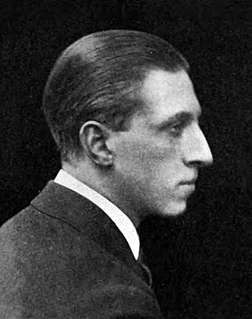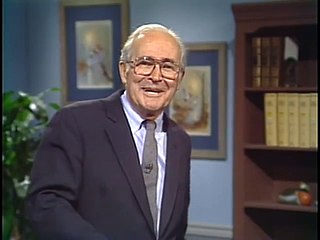A Quote by Spencer W. Kimball
How could a person possibly become what he is not thinking? Nor is any thought, when persistently entertained, too small to have its effect. The 'divinity that shapes our ends' is indeed ourselves.
Related Quotes
It seems to me, that this, too, is how memory works. What we remember of what was done to us shapes our view, molds us, sets our stance. But what we remember is past, it no longer exists, and yet we hold on to it, live by it, surrender so much control to it. What do we become when we put down the scripts written by history and memory, when each person before us can be seen free of the cultural or personal narrative we've inherited or devised? When we, ourselves, can taste that freedom.
There is a plan, it seems to me, that reaches out of the electron to the rim of the universe and what this plan may be or how it came about is beyond my feeble intellect. But if we are looking for something on which to pin our faith- and, indeed, our hope- the plan might well be it. I think we have thought too small and have been too afraid.
So when we call pain a problem, we claim we do not deserve it. We are even prepared to scuttle God to maintain our own innocence. We will say that God is not able to do what He would like, or He would never permit persons such as ourselves to suffer. That puffs up our egos and soothes our griefs at the same time. "How could God do this to me?" is at once an admission of pain and a soporific for it. It reduces our personal grief by eradicating the deity. Drastic medicine, indeed, that only a human ego, run wild, could possibly imagine.
In short, I didn't become a Christian because God promised I would have an even happier life than I had as an atheist. He never promised any such thing. Indeed, following him would inevitably bring divine demotions in the eyes of the world. Rather, I became a Christian because the evidence was so compelling that Jesus really is the one-and-only Son of God who proved his divinity by rising from the dead. That meant following him was the most rational and logical step I could possibly take.
I don't want to feel what I'm creating on film has an outcome that is preordained. I don't think of the world as a place with a divinity that shapes our end. What you try to do with film is create, as far as you possibly can, an unfolding present - a theatre in which an outcome happens and is tested.
Consider prejudice. Once a person begins to accept a stereotype of a particular group, that "thought" becomes an active agent, "participating" in shaping how he or she interacts with another person who falls in that stereotyped class. In turn, the tone of their interaction influences the other person's behaviour. The prejudiced person can't see how his prejudice shapes what he "sees" and how he acts. In some sense, if he did, he would no longer be prejudiced. To operate, the "thought" of prejudice must remain hidden to its holder
We cannot think too highly of our nature, nor too humbly of ourselves. When we see the martyr to virtue, subject as he is to the infirmities of a man, yet suffering the tortures of a demon, and bearing them with the magnanimity of a God, do we not behold a heroism that angels may indeed surpass, but which they cannot imitate, and must admire.
































